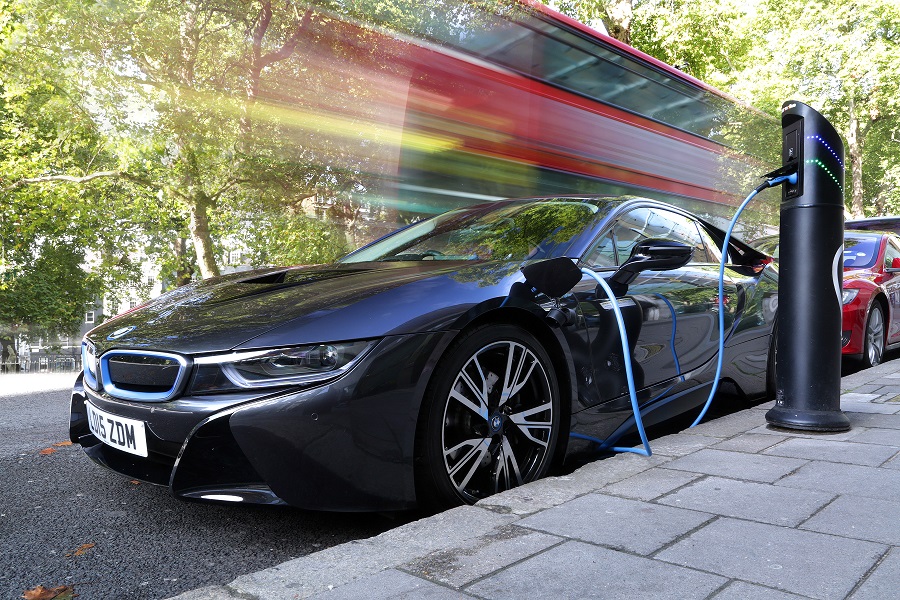A major rethink and modernisation of energy policy is required to prevent millions of consumers from missing out on the benefits of electric vehicles and other emerging energy technologies, a new report has warned.
The ‘Smart Cities: Fair investment for sustainable growth’ report, produced by Localis, warns that social divides could be exacerbated and consumers in deprived areas locked out of experiencing the benefits of the energy transition unless there is a considerable and concerted overhaul of energy policy.
Amongst the report’s recommendations are a devolution of certain Ofgem powers to city regions and local authorities, the introduction of private energy network providers to the energy landscape and a standardised framework for electric vehicle infrastructure countrywide.
Jonathan Werran, chief executive at Localis, said the regulatory status quo risked enacting a “tale of two cities in our major urban centres”, featuring “deepening levels of inequality between the prosperous and more deprived parts of town”.
“A ‘devolution revolution’ in locally-regulated energy markets has the potential to accelerate the nation’s switch to clean growth, turn UK cities into powerhouses for sustainable and inclusive prosperity and improve livelihoods in towns and cities across the UK,” he said.
The report places the issues of fairness centrally, arguing that the benefits of ‘smart’ energy and electric vehicles can only be felt if there is a more considered rollout of physical infrastructure. If powers surrounding the deployment of new infrastructure are kept as they are, the report’s authors fear new technologies could be installed unevenly with already deprived areas being left behind.
This may require an entirely updated and modernised regulatory framework, addressing key barriers to the deployment of new technologies such as the ability of network operators to invest ahead of demand.
Localis’ claims the existing framework for network investment – RIIO – restricts networks to invest only where there is a proven need to, adding that this places the networks at risk of not being able to respond quickly enough to surging demand.
The report calls on Ofgem to loosen regulations surrounding this, arguing that EV charging points and associated grid upgrades in particular be allowed to be invested in ahead of demand, a factor which would provide private businesses and consumers more confidence in the country’s charging network.
This can then be extended, the report says, by devolving certain powers Ofgem has maintained to allow cities and local authorities to develop their own energy policy, which would in turn translate to better understood and coordinated rollouts of emerging technologies.
A further recommendation in the report is to allow these local authorities to form consortia involving developers and energy companies which can put so-called smart city plans into place, enabling long-term strategic thinking and delivering more widely-accessible benefits. Local government could then work alongside private energy network providers – or independent Distribution Network Operators (iDNOs) to deliver physical infrastructure for the energy transition.
One of the report’s recommendations could however be deemed controversial, with Localis calling for private providers to be given access to public data and vice versa. There have been limited examples of entities sharing or gaining access to consumer data in order to better understand demand, but it remains a controversial subject given consumer privacy fears.
Joe Fyans, head of data research at Localis and one of the report’s authors, said: “The advancement of smart technology into households has huge potential for increasing the quality and efficiency of local public policy, but we have to make sure we have the nuts and bolts infrastructure in place to facilitate this change by securing the appropriate investment, and in a timely fashion.”
The report’s recommendations have been welcomed by utility ScottishPower, whose chief executive Keith Anderson said the report needed to be considered further.
“What is clear is that no one should be excluded from the benefits that the electrification of transport will bring, which is why energy network companies are so well placed to help, serving customers in both urban and rural areas.
“At ScottishPower we want to play our part to help electrify transport and realise the benefits quicker of cleaner air and lower carbon emissions. We look forward to working with the government and regulators to ensure the investment needed is delivered and that overall costs are minimised so that everybody has access to the health benefits of technologies such as electric vehicles, not just those who can afford it today.”






